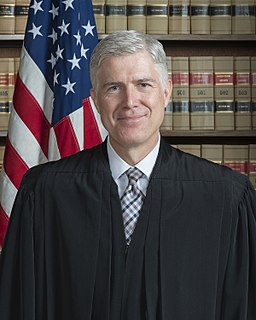A Quote by Orrin Hatch
Under the Constitution, the president, not the Senate, nominates and appoints judges. The Senate has a different role. We must give our advice .
Related Quotes
While the president is to nominate that individual [to Supreme Court], we in the Senate must provide our advice and consent. This function is not well-defined. The Constitution does not set down a road map. It does not require hearings. In fact, it does not even require questioning on your understanding of the Constitution nor the role of the Supreme Court.
I understand the politics of the situation, I think that many Republican members of the senate believe that,get out the vote move. They can indicate that they're strong for their base. But the Constitution's pretty clear. The president Donald Trump has to nominate someone. The senate can choose to disapprove. There's nothing in their Constitution that says the grounds upon which they must vote. But to refuse even to meet with the individual, or to have the process go forward, that's just pure politics.
The constitution has divided the powers of government into three branches, Legislative, Executive and Judiciary, lodging each with a distinct magistracy. The Legislative it has given completely to the Senate and House of Representatives. It has declared that the Executive powers shall be vested in the President, submitting special articles of it to a negative by the Senate, and it has vested the Judiciary power in the courts of justice, with certain exceptions also in favor of the Senate.

































